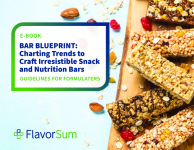Common food additives may cut acrylamide formation
reduce the formation of acrylamide in potato chips by about 85 per
cent, according to a new study.
"This research presents a technology to inhibit acrylamide formation in fried potato chips by immersion of fresh potato chips with some food additives," wrote the researchers in the journal Innovative Food Science & Emerging Technologies .
"The approach suggested that cysteine and calcium chloride significantly decreased the content of acrylamide in fried potato chips and their concentrations could be kept constant by using a conductor as a detector," they added.
Acrylamide is a carcinogen that is created when starchy foods are baked, roasted, fried or toasted.
It first hit the headlines in 2002, when scientists at the Swedish Food Administration first reported unexpectedly high levels of acrylamide, found to cause cancer in laboratory rats, in carbohydrate-rich foods.
Since the Swedish discovery a global effort has been underway to amass data about this chemical.
More than 200 research projects have been initiated around the world, and their findings co-ordinated by national governments, the EU and the United Nations.
The researchers, from Jinan University and supported by a grant from Guangdong Province government, tested the food additives ferulic acid, catechin, calcium chloride, sodium bisulfite, and l-cysteine on inhibition of acrylamide formation.
The additives were added to a solution and the potato chips in solutions prior to the frying process, and calcium chloride, sodium bisulfite and l-cysteine found to be the most efficient and identified for further study.
This additional study found that, while l-cysteine was the most efficient agent, calcium chloride (CaCl2) had the most potential.
"It was found that l-cysteine showed little effect on the texture of the crisps and CaCl2 is regarded as the suitable choice because of its low price and the acceptable mouth feel of fried crisps treated by CaCl2, although it increased the brittleness," wrote lead author Shiyi Ou.
The researchers took one final step in testing the potential of the additive by scaling up the process to an industrial size.
By maintaining the calcium chloride at five grams per litre, the researchers report that acrylamide formation was reduced by over 85 per cent.
"I t can be concluded that CaCl2 is a potential agent in decreasing acrylamide formation in fried potato crisps and can be applied on industrial scale ," stated the Ou and co-workers.
Calcium chloride (E 509) is widely used as a firming agent during processing.
Turkish researchers have also proposed that calcium chloride may have the potential to be used as an additive to prevent acrylamide formation.
Indeed, a study published in the journal Food Chemistry (doi: 10.1016/j.foodchem.2006.08.011) reported that the additive could reduce acrylamide formation in potato chips and French fries by about 95 per cent.
Source: Innovative Food Science & Emerging Technologies (Elsevier) Published on-line ahead of print, doi:10.1016/j.ifset.2007.06.008 "Reduction of acrylamide formation by selected agents in fried potato crisps on industrial scale" Authors: S. Ou, Q. Lin, Y. Zhang, C. Huang, X. Sun and L. Fu














